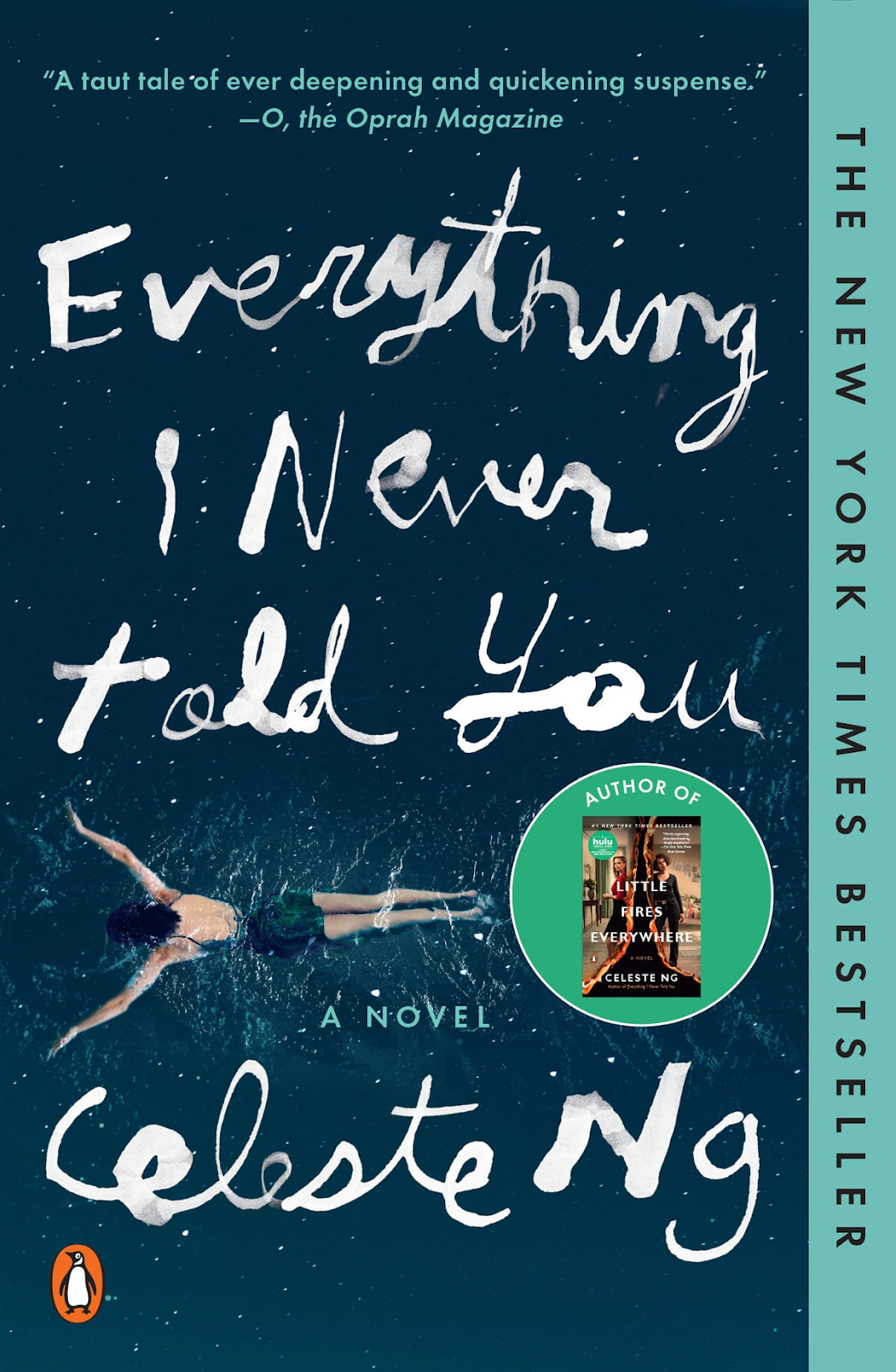“Everything I Never told you” was written by Celeste Ng, a female Asian American writer. The novel is 2014 debut and topped Amazon’s Best Books of the Year list for 2014. Similarly, it was a New York Times bestseller and champion of the Massachusetts Book Award. The story is about a teenage lass, Lydia, who drowned in a nearby lake of a mixed-race Chinese-American household.
The rationale why I determined this
novel, as I cited in my introduction blog. I got used to selecting a reader
that could uplift my soul mind. The relationship is material in every temporary
position in the world. I consistently inquire about creating an APPROPRIATE
relationship because individuals have various personalities and family
surroundings. A listener may perceive an unintended meaning in what is said,
particularly in casual conversations. “Everything I Never told you,” as if a touch
divulges the explanation behind every single movement between humans. Next, I
will convey what I have read so far.
“Lydia is dead. But they don’t know
this yet,” an unexpected paragraph of the curtain is open. The story
begins with a racial difference—a Chinese American family living in 1970s
small-town Ohio. Lee’s family has five members, including James (father),
Marilyn (mother), Nathan (older brother), Hannah (younger sister). Last but not
least, Lydia Elizabeth Lee, parents’ favorite teenage daughter, will fulfill
the dreams they were unable to pursue. In the first chapter, this family is
confused about Lydia’s death. How come an outstanding Harvard daughter secretly
passed away. “On the stairs, Lydia’s brother yawns still twined in the
tail end of his dream. And in her chair in the corner of the kitchen, Lydia’s
sister hunches moon-eyed over her corn flakes waiting for Lydia to appear.” This
setting is just an ordinary day as every family’s morning. Unfortunately, a
flowered halter-neck dress is found as if a faded Jasmine is floating on the
glitter water surface. A series of delicate balancing behaviors keep tearing
the Lee family apart.
In chapter one, Nathan’s most
prominent siblings are confident that the neighborhood bad boy was involved in
Lydia’s death. Her younger sister, Hannah, displays the observer and knows more
than anyone realizes. In chapter two, individuals could comprehend Lydia’s
parents’ marriage—Asian and American, was not blessed by society. “You’ll regret it
later,” said
Marilyn’s mother to Marilyn, who’s looking for crystal-like love with James.
Moreover, this chapter combined the social stereotype of racial discrimination
and gender equality. Americans consistently have an intolerance to Asians. For
instance, Lydia has difficulties making a friend in school. And her mother,
Marilyn, is regarded as too vulnerable to study chemistry or be a physician.
“Everything I have never told you”
is a story as if it reflects the shadow of my proper lifestyle. I’m from a
mixed-race family. My father is Hakka, and my mother is Hokkien. I also have
two siblings in my family. During spare time, my family would rather dwell in
the bedroom than chat with each other. Body language has evolved the primarily
connected underpass with family relationships. For instance, I lived with my
grandmother, who speaks Hakka, but I genuinely don’t know what she’s talking
about. Ever since I remember, I have seldom chatted with her. Television,
cellphones, and computers have become the entertainment we most spend time on.
As I gradually get older, this pebble barricade becomes higher and higher.
Sometimes, I am more familiar with my friend rather than family. The family
relationship is an exquisite confection wrapping with bitter flavor chocolate. We
don’t want to open up and taste those heartbroken remembrances.
This fiction also reminded me about “Confessions,” a 2010 Japanese detective movie describing the seamy side of humanity in various Japanese families. Those revenge incidents’ motivations all initiate with the character’s family background. “Humans are greedy by nature. It is human nature to love and hate,” the film quote indicated the sophisticated relationship. I undoubtedly considered this quote after watching “Confession.” However, behavior is the combination of vibrancy, education, etc. I wonder what the dissimilarity is between my life and this Western fiction. In other words, Western and Eastern education is distinct.
Through the author’s close-to-life
writing style, this mystery circumstance of sixteen-year-old Lydia Lee’s tragic
death exactly leaps before the eyes. In every conceivable manner, the family
links our past, the bridge to our future. Family is stage one, the basis of the
core that affects the ego.
As you can see on the book’s cover, deep blue and an afloat lassie, the book’s tone is depressing. It is a blue-pill treatment of my snowflake; hence, I suppose a family relationship couldn’t choose. I have the same sensibility as my mother and my father’s same sense. In my perspective, Lydia’s death is the mixing of her parents’ hereditary. Hence, the children usually unintentionally step the same road as their parents. Nevertheless, I believe the uncovering secrets hide or reveal poignant answers.




No comments:
Post a Comment